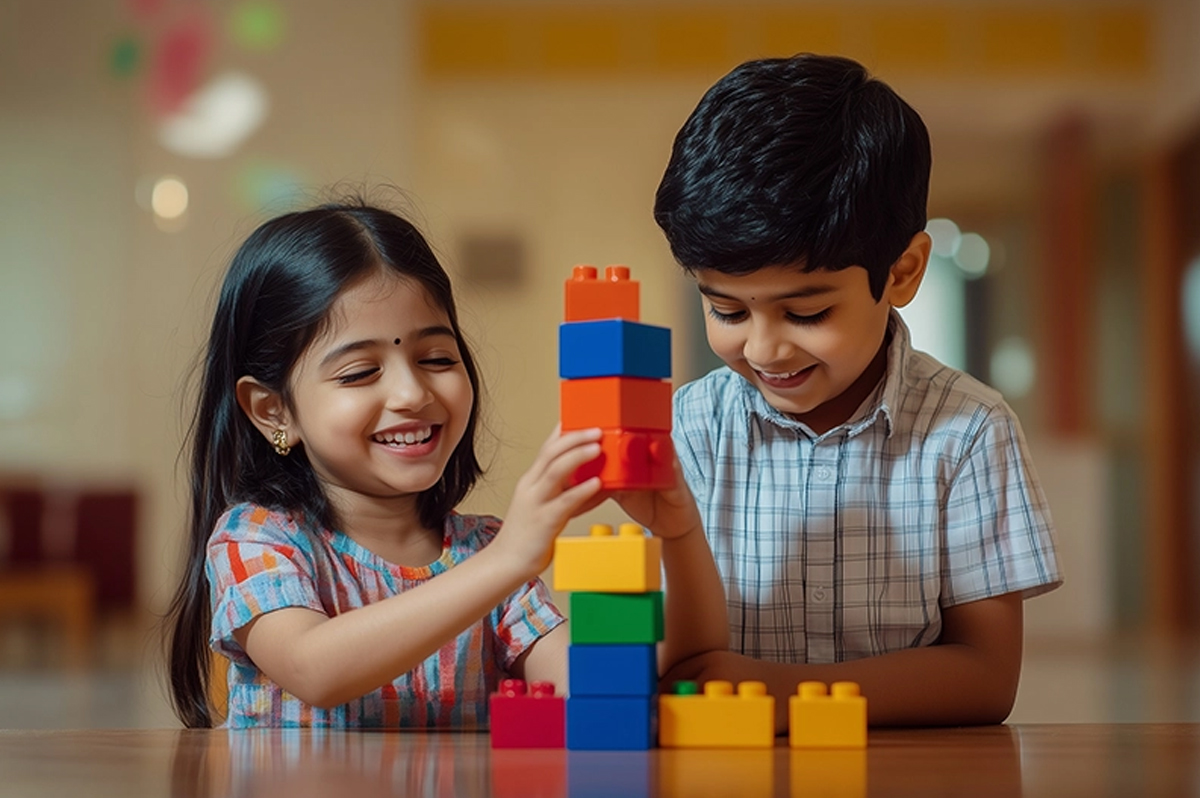
Importance of Play Therapy for Children with Global Developmental Delay (GDD)
Play therapy is a crucial tool for children with Global Developmental Delay (GDD), offering them a structured and supportive environment to foster their development. According to Jean Piaget, “Play is the answer to how anything new comes about.” For children with GDD, play therapy helps improve cognitive, emotional, and social skills while enhancing communication abilities. It provides a medium for expression, allowing these children to engage in activities that promote their overall growth despite developmental challenges.
As children with GDD grow, their play development may follow a modified pattern, but key stages can still be supported through play therapy:
- 0-6 Months: Free Spontaneous Play – Encourages sensory exploration and emotional bonding.
- 6-12 Months: Solitary Play – Focuses on self-awareness and motor skills development.
- 1-2 ½ Years: Parallel Play – Promotes social interaction and imitation skills.
- 2 ½ - 4 ½ Years: Associative Play – Encourages shared activities and emotional expression with peers.
- 4-7 Years: Co-Operative Play – Develops teamwork, socialization, and problem-solving skills.
Few Play Therapy Activities for Children with GDD (0-7 Years)
- Painting: Finger painting, vegetable painting, and other art activities help stimulate creativity and fine motor skills.
- Stories: Reading stories and role-playing helps improve language and communication skills.
- Singing: Singing and reciting rhymes with actions aid in language development and memory.
- Puzzles: Solving puzzles fosters cognitive development, problem-solving, and concentration.
- Cutting & Pasting: Engaging in fine motor activities like cutting, colouring, and clay modelling enhances hand-eye coordination.
- Symbolic Play: Using dolls, toy telephones, and role-play scenarios helps build imagination, communication, and social skills.
- Outdoor Activities: Encouraging outdoor exploration enhances sensory experiences and motor development.
- Thinking: Encouraging thinking through simple questions and activities stimulates cognitive skills.
- Sound Recognition: Games focused on sound identification support auditory processing and language skills.
- Simple Concepts: Teaching concepts like up/down, full/empty, and big/little strengthens understanding of the world.
- Texture: Exploring textures (smooth, rough, etc.) improves tactile awareness and sensory processing.
- Senses: Activities that engage multiple senses support better learning and internalization.
Play therapy is an essential aspect of supporting children with GDD, helping them build emotional resilience, enhance social interactions, and foster developmental progress. By engaging in therapeutic play, children with GDD can better express themselves, connect with their peers, and develop key skills necessary for their growth.
